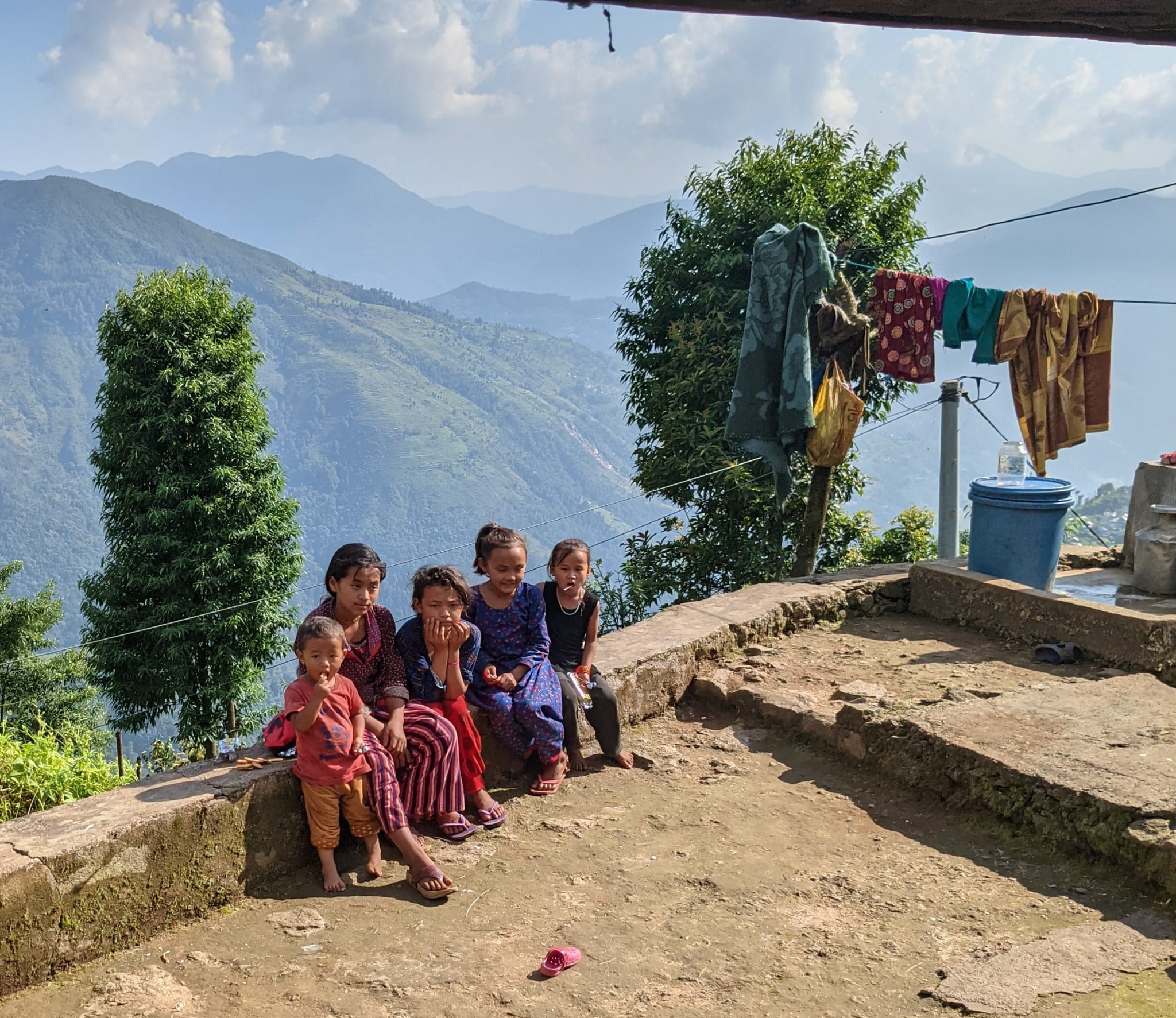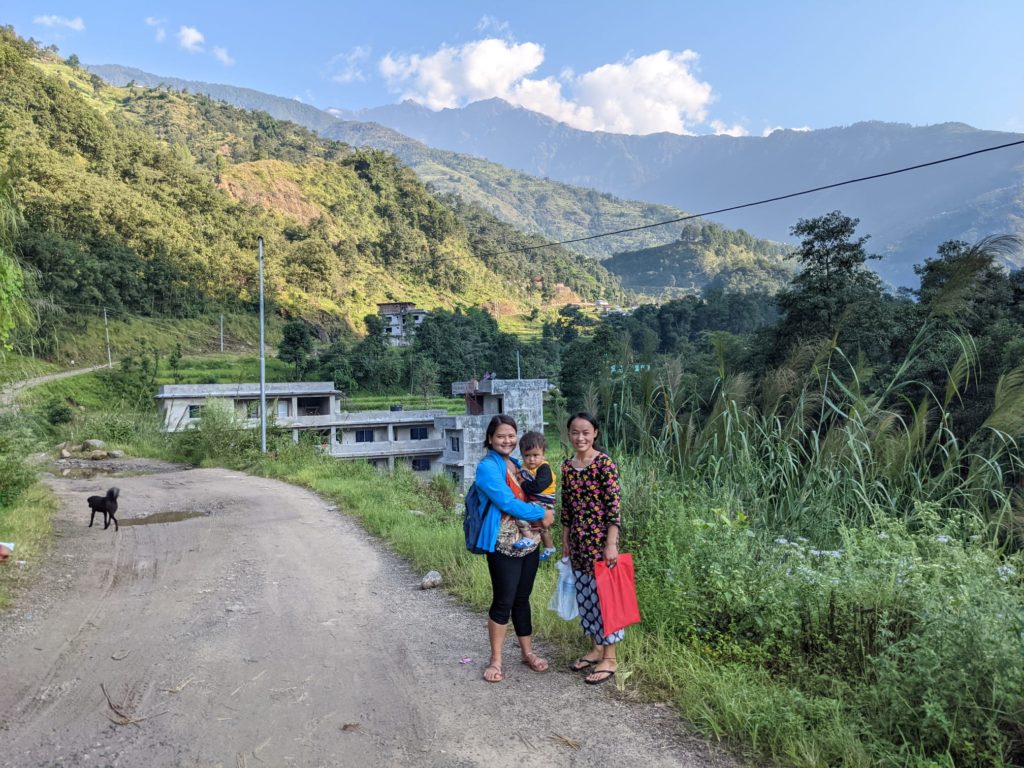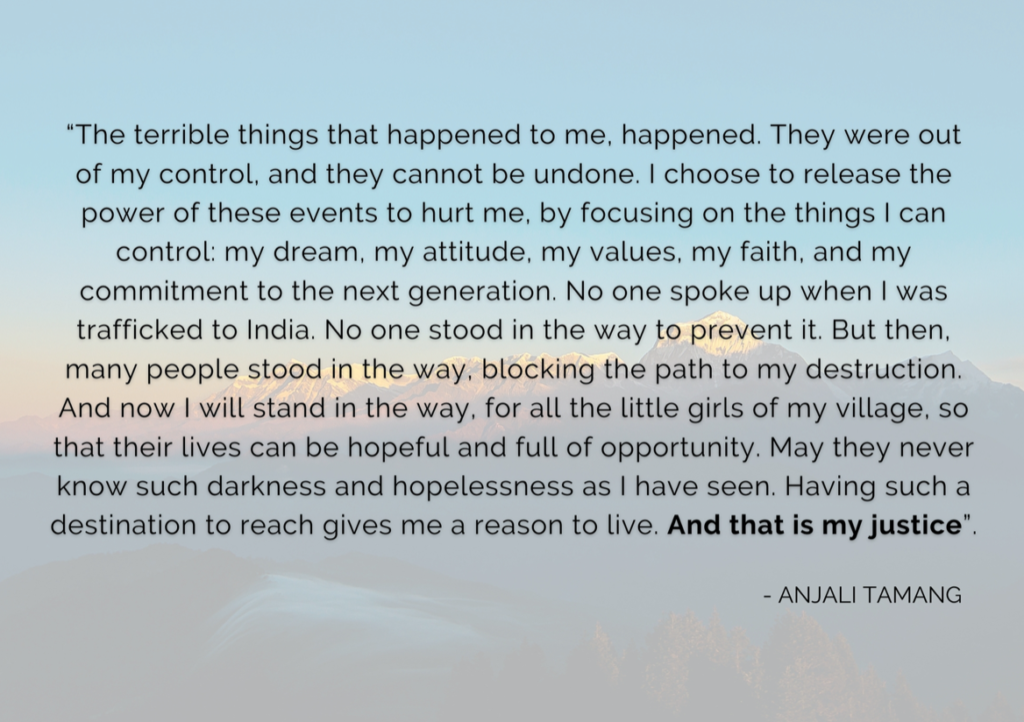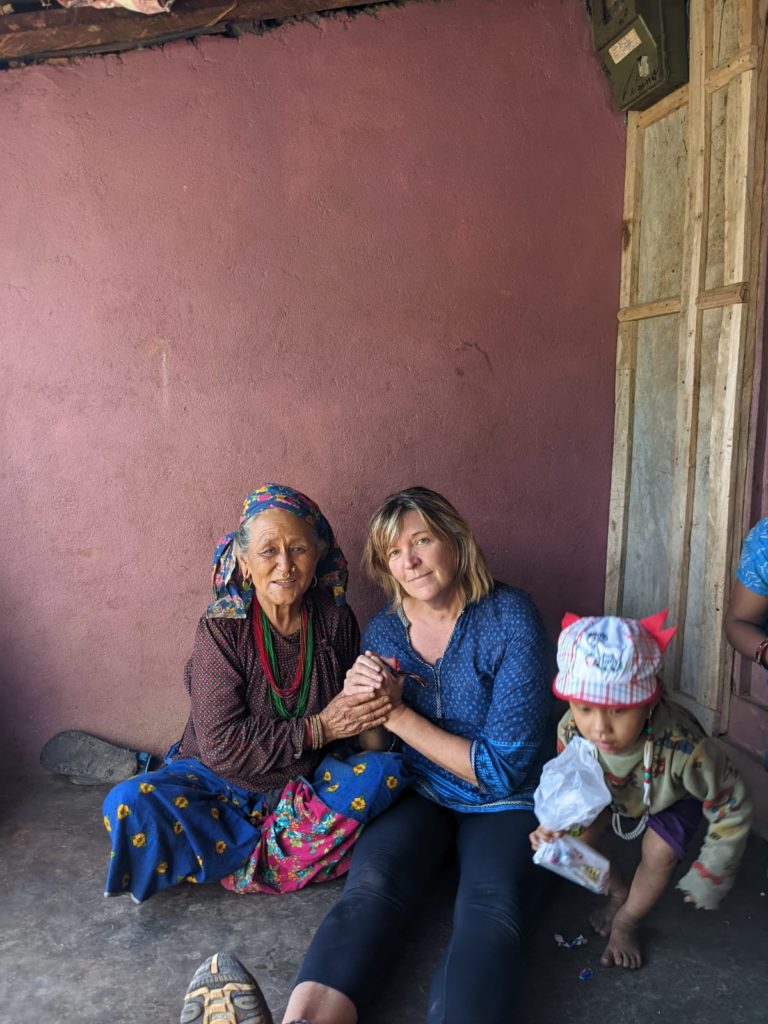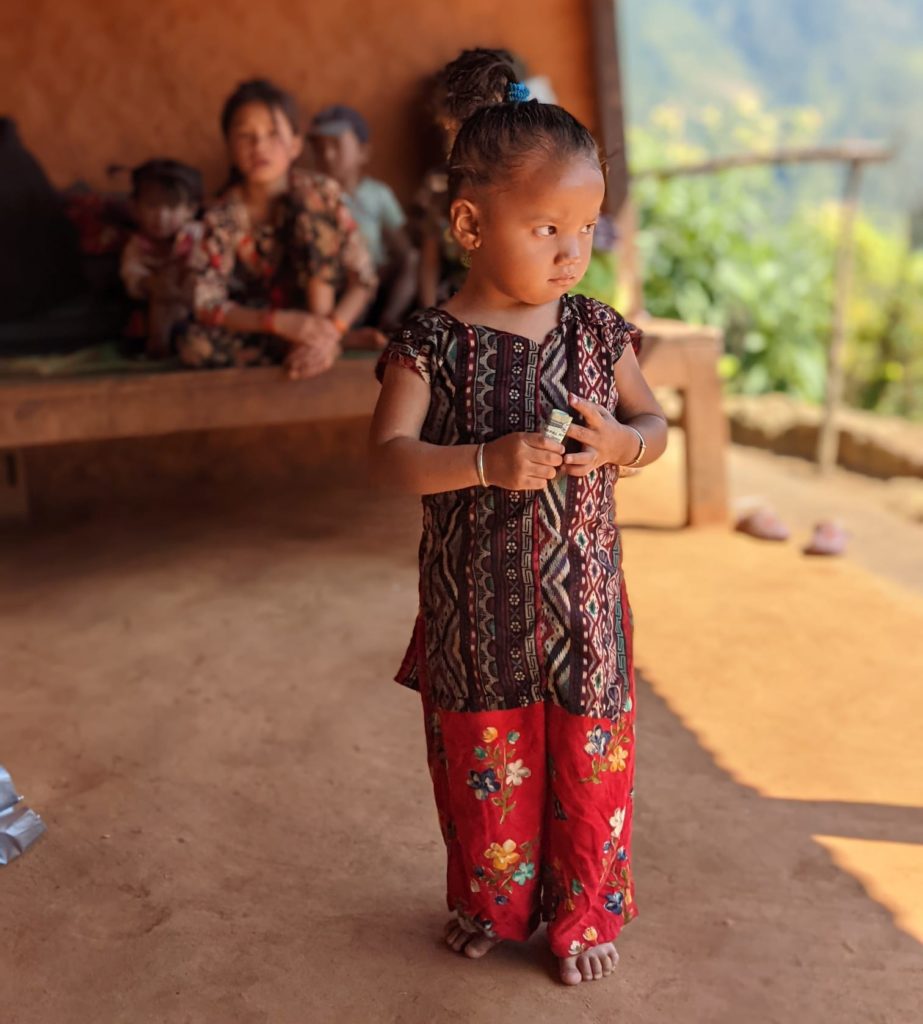Nepal Update - Nov. 2021
I just returned from several weeks in Nepal, working alongside Anjali Tamang at the new school that she has built – and that HFC is supporting – in her village. The work that Anjali, her husband Binod, and their growing team are doing is powerful and beautiful beyond my ability to express.
Anjali first shared her dream of building this school with me shortly after she was rescued in 2009, in Kolkata. Three weeks ago, that dream came to fruition, with the first 55 kids now being educated at a brand new, three-story school building.
Almost all the kids at the school are members of the Tamang indigenous community. This community is extremely poor, because they are subsistence farmers and the land is mountainous and not very fertile. Most people live in very basic conditions in remote areas in the high mountains, 3-6 hours’ walk from towns, and mostly inaccessible by road. 7 out of 10 sex Nepali trafficking victims are from indigenous communities like this one. Over the past two decades, trafficking of girls from this area to the red light areas of India has become normalized and very common, to the point where almost every family has daughters or wives in the brothels of India. This is the brutal system into which Anjali herself was forced.
The UN International Labor Organization reports that over 12,000 women and girls are trafficked out of Nepal to India every year, with around 200,000 currently working in Indian brothels. These numbers sharply increased after the 2015-16 earthquakes, and again by the increase in poverty due to COVID-19.
The Freedom School was created to turn the tide, to provide an alternative to child trafficking and child marriage, to provide support services for women who have returned from the brothels of India, and to provide anti-trafficking awareness to change the mindset of the entire community. “Girls are forced into early marriage to prevent being trafficked and to reduce the financial burden on parents. Less than 10% of girls in my village complete high school, and I am the only female university student from the village When resources are limited, only the boys are sent to school. Girls are raised to believe that there is no other option than to obey their parents and others in authority. This is one reason why many Tamang girls who are trafficked do not even try to escape” says Anjali.
While I was visiting, 12 girls came down from remote mountain villages to enroll in school. They were 11 to 18 years old, and had left school in 2nd or 3rd grade. These girls were at imminent risk for being trafficked.Now, with intensive tutoring, room and board, counseling and lots of loving care, they will be able to get back into school and build a bright future.
The day before the girls arrived, we spent the day at a larger town 2 hours from the village, buying school supplies and blankets and everything else they would need. We woke up before dawn to prepare for their arrival, and were joined by many neighborhood kids and adults who have come to believe in Anjali’s dream and came to support her and welcome the new girls. The girls were accompanied on their long walk from their village by two dads and a mom who are daring to hope for something more for their daughters. Things are already changing. Anjali is not alone. There is a growing network of support for her work, in the village and around the world.
Thank you for being part of that network of love!
Sarah Symons, CEO & Founder
